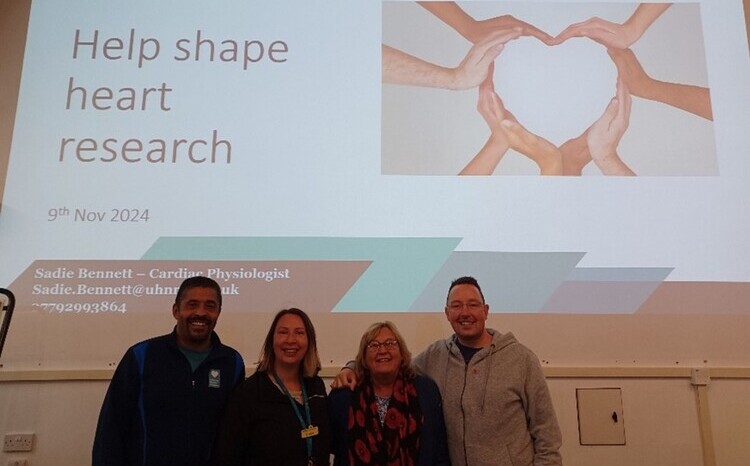AI tool can identify risk of heart attack ‘years before it strikes’
- 20 April 2021

An artificial intelligence tool that can identify people at risk of a heart attack years before it strikes is now ready to be rolled out across the NHS.
The CaRi-Heart tool, developed by Caristo Diagnostics and based on research funded by the British Heart Foundation (BHF), predicts possible heart disease using routine heart scans.
It works by scanning “ticking-time-bomb” arteries that could become clogged to cause a heart attack. Looking at regular heart scans the artificial intelligence (AI) technology produces a ‘fat attenuation index score’ (FAI-Score), which accurately measures inflammation of blood vessels in and around the heart.
It’s this inflammation that could eventually lead to a heart attack.
Those identified at high risk of a future heart attack can then be given personalised medication, as well as being monitored more closely, to prevent a life-threatening situation.
It received its CE accreditation in March and is now ready for use by doctors across the UK and Europe.
Dr Cheerag Shirodaria, chief executive officer and co-founder of Caristo Diagnostics, said: “The beauty of our technology is that it will not only save countless lives, but it is incredibly simple. CaRi-Heart analysis can be undertaken on any CT heart scan, hospitals don’t need to change equipment and patients don’t need another test.
“Physicians simply need to send their patient’s CT heart scan and they will then receive the personalised FAI-Score and CaRi-Heart Risk to guide patient management. It fits perfectly with a physician’s workflow.”
The scientific work that underpins Caristo Diagnostics was initially carried out by BHF researchers at the University of Oxford.
The technology was validated in a BHF study with 4000 patients who were followed up for nine years after their original coronary CT angiogram.
They found that people with an abnormal FAI were up to nine times more likely to die of a heart attack in the next nine years than those with normal FAI readings. The study also showed that at least one third of patients who underwent a routine coronary CT angiogram and were initially considered low risk had a much higher risk after CaRi-Heart was applied to their scan.
Now researchers are looking at ways to use the technology to better predict an individual’s risk of developing stroke and diabetes by analysing routine CT scans.
They are also developing an AI tool to specifically identify Covid-19 patients who are at high risk of having a future heart attack or stroke.
Professor James Leiper, associate medical director at the British Heart Foundation, said: “The development and approval of this new AI tool is a major success story. It’s a prime example of how BHF-funded research can lay the foundations for a truly transformational advance in the diagnosis and prevention of heart and circulatory diseases.
“This research exemplifies the fundamental role medical research charities play in the translation of scientific research into the commercial and clinical sectors, which ultimately benefits the UK’s scientific ecosystem and patients with cardiovascular disease.
“Sadly, the pandemic has had a devastating blow to the BHF’s research spend, cutting it in half by £50 million this year alone. We need the kind support of the public more than ever to continue our life-saving research so more projects like this can get off the ground.”





2 Comments
We are old School Framingham risk score keepers, but i believe this could be a real game changer, bodes well for the Diagnostic industry
Hmmn. With CXR radiation dose of 0.1mSv & dose for CTA of 20-40 of these, if this does end up in widespread and uncritical use, displacing all other risk calculators, it might be regarded as an unfortunate case of Vorsprung durch Roentgen.
Comments are closed.